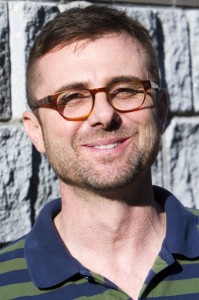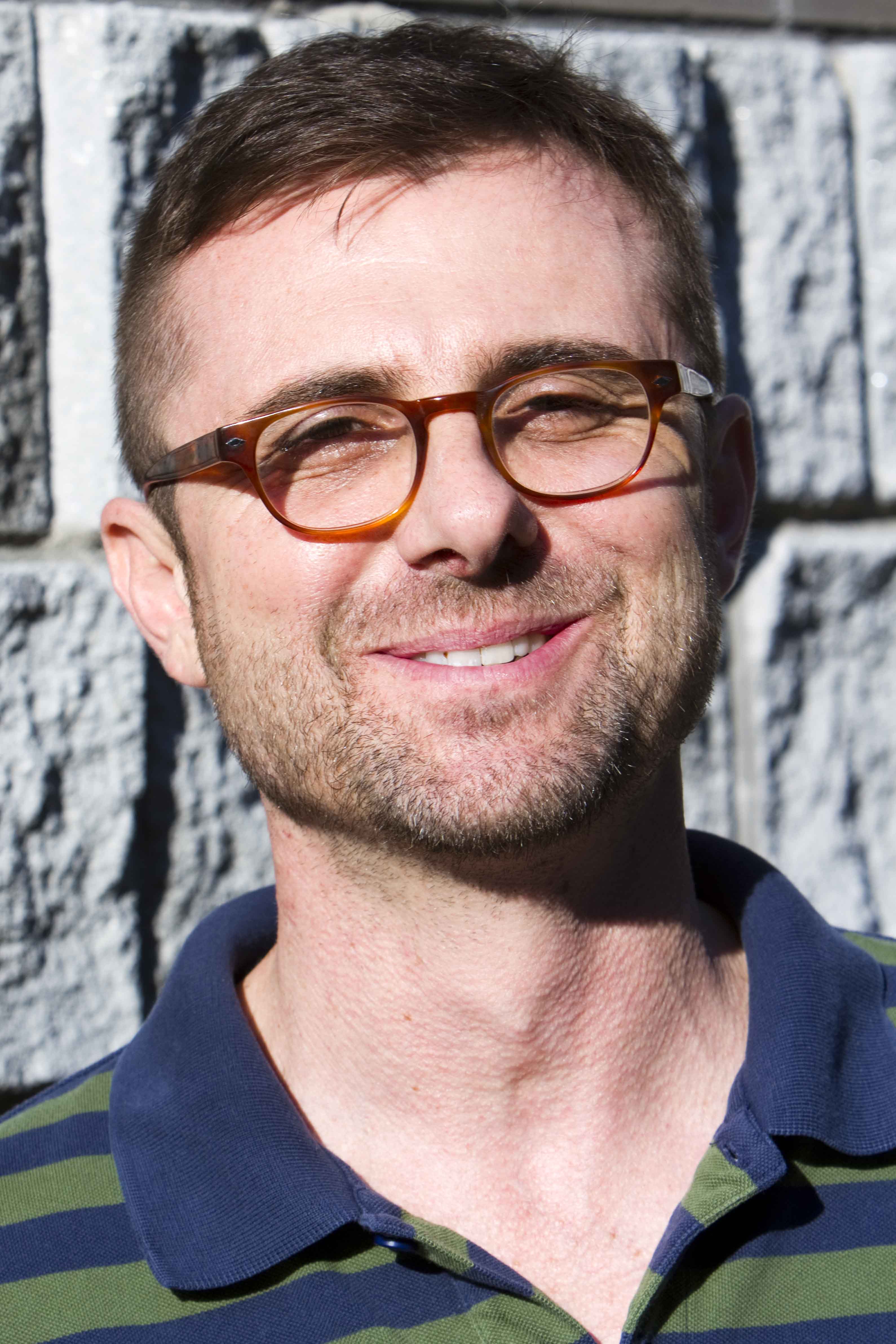SENDING a book out into the world is an act of bravery. The author, hoping for a positive reaction, must be prepared for a less enthusiastic response. For an author married to a highly respected and prolific man of letters, presenting his own efforts to the public for the first time requires that much more courage.
 In his forthcoming collection, Little Reef and Other Stories, to be released June 16th by the University of Wisconsin Press, Michael Carroll, the husband of Edmund White, boldly shares his voice with the world. Carroll’s characters—no longer provincial, but not yet cosmopolitan—live in a rich but increasingly divided America. Stunned by the shock of the now, they’ve often forgotten their past lives and can’t envision a future.
In his forthcoming collection, Little Reef and Other Stories, to be released June 16th by the University of Wisconsin Press, Michael Carroll, the husband of Edmund White, boldly shares his voice with the world. Carroll’s characters—no longer provincial, but not yet cosmopolitan—live in a rich but increasingly divided America. Stunned by the shock of the now, they’ve often forgotten their past lives and can’t envision a future.
I interviewed Michael Carroll in person, in Manhattan, where he lives with Edmund White.
Court Stroud: When did you decide to write a book?
Michael Carroll: I always wanted to be a writer. One summer when I was twelve, every night I would sit down at my typewriter and make myself write five pages. At the end of the summer I had a novel.
CS: In the first short story of Little Reef, “From the desk of hunter b. gwathmey,” you share the story about a teenager who wants to be a writer. Is this piece autobiographical?
MC: Yes, it’s autobiographical in that there was a man that my gifted class went to see in the school board administration building downtown in Jacksonville where I grew up. He wrote something very similar to what I describe. I fictionalized him. His real name is Jack Hunter. He wrote a novel called The Blue Max [1964], which became a George Peppard movie about World War I. I did write him a letter. I don’t have the letter because my parents have moved so many times, I have no idea if it still exists. The sexual confrontation in New Orleans actually happened. The last section of the story about the character George Trailer, who is the cultural critic, is completely made up. I really didn’t know where I was going with this story. In fact, whenever I write a story, I’m not sure where it’s going, almost never.
CS: How do you blend fact with fiction?
MC: I just imagine myself in different situations. Nothing is too sacred to me, and since I don’t deal in a classical plot structure, I think it’s just more fun to let the characters create the story, to live it out. Since I’m trying not to manipulate anything at all, it’s very easy to mix fact and fiction.
CS: You say you don’t follow a classical plot line. How would you describe your writing?
MC: Classical structure would have some kind of buildup—which I stopped doing. I stopped having climactic moments. To me, any moment in a story could be climactic, and then continue to the next moment.
CS: Why do you bring that outlook to the page?
MC: I want it to be more realistic. I want it to be more like life. When I wrote a story called “Werewolf,” I thought of the first sentence and I thought of one of my best friends from high school, and I just kept adding sentences. It’s like I don’t know what the wall is going to look like. I just keep adding bricks until I’ve added the last brick.
CS: It’s as if you set up an omniscient camera, watching and recording the people passing by a sidewalk café as they walk into and out of the frame.
MC: That’s exactly it! In and out of the frame is a perfect metaphor. When I write a story, I just write everything about it that I know and leave out what I can. Then I go back and say, “What else can I get rid of?” because I don’t want the story to sound like itself. I don’t want it to be about what it’s about. If it starts to become about what it’s about, then it’s predictable.
CS: How long did it take you to write Little Reef?
MC: Most of it I wrote in about a year. These are my most recent stories. I’ve published about twelve others, but they’re not in the book. I published in lots of magazines in that old way where I was trying to create a classical climactic structure. And then Ed had a stroke and suddenly was helpless. Once he started getting better in a few months, I would leave the apartment and just write for about four hours a day. I write in the Barracuda Lounge [a bar in New York’s Chelsea district], in the back part, during Happy Hour.
CS: Did Ed’s illness and convalescence affect your writing process?
MC: It made it more urgent. It made me more impatient with beautiful phrasing. It was about getting everything down and giving it enough shape so that it moved, so that it was logical. But it made not only my writing more urgent; it made my life more urgent.
CS: What’s it like being the husband of Edmund White—and being a writer?
MC: We have a really nice working relationship. I do everything I can to help him. We do things—I guess they call them plot walks. If he’s having a problem, I help him find ideas and solutions. But because I was the one who wasn’t publishing books for such a long time, I don’t share my work with him until it’s done.
CS: He only sees the final version?
MC: Ed saw the manuscript that I was sending out for Little Reef. He saw that. This was before I did two complete revisions. But we didn’t much talk about it, and I think it’s because he knows that I’m trying to get it the way I want it. When I showed the book and got the blurbs from really cool people, the first thing they commented on was how different it was [from Ed’s work]. So I wanted to thrive in my differentness, in my marriage, as one of two writers. It’s mostly wonderful and I’m taken seriously now that I have a book, but I tell you, when they say it doesn’t make a difference in your life to get a book published, that’s not true. Suddenly people look at you very differently.
CS: Are you talking about people in general or the literary community?
MC: Strangers, writers, people in our circle. Most people probably thought I was feckless and a dilettante and unable to bring something to fruition—and that was agonizing because that becomes part of your consciousness, that awareness that you’re not producing something. A published book is producing something.
Court Stroud works in Spanish-language television in New York City.





